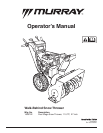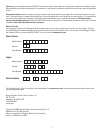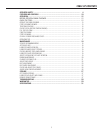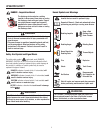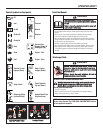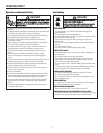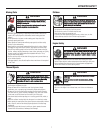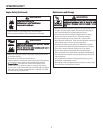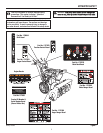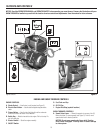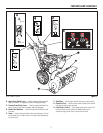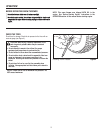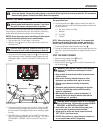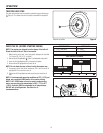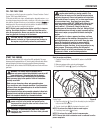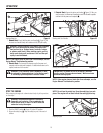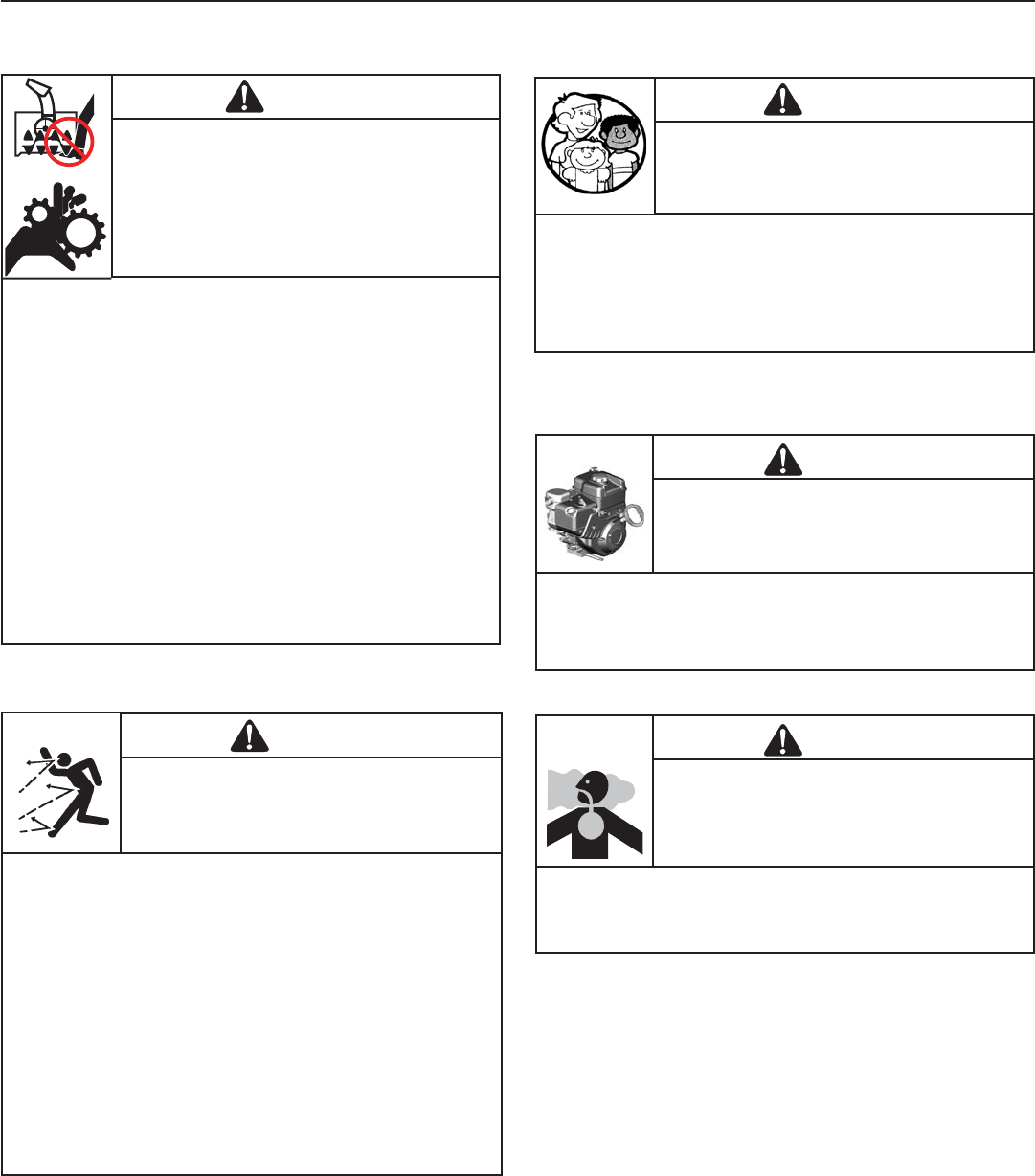
7
• Keep children out of the area during operation. Children are often attracted to
the equipment. Be mindful of all persons present.
• Be alert and turn unit off if children enter the area.
• Never allow children to operate the unit.
• Use extra care when approaching blind corners, shrubs, trees, or other
objects that may obscure vision. Children may be present.
DANGER
Tragic accidents can occur if the operator is not alert to the
presence of children. Children are ofte
n attracted to the unit
and the operating activity. Never assume that children will
remain where you la
st saw them.
Children
• Start and run engine outdoors.
• Do not run the engine in an enclosed area, even if doors or windows are
open.
DANGER
Engines give off carbon monoxide, an odorless, colorless,
poison gas.
Breathing carbon monoxide can ca
use nausea, fainting,
or death.
Engine Safety
• Disengage all clutches and shift into neutral before starting the engine.
• Let the engine adjust to outdoor temperatures before starting to clear snow.
• Use a grounded three-wire plug-in for all snow throwers equipped with
electric drive motors or electric starting motors.
DANGER
Safe operation of the snow thrower requires the proper care
and maintenance of the engine. Failure to
observe the safety
instructions in this manual will result in death or serious
injury.
• Always wear safety glasses or eye shields while during operation, and while
performing an adjustment or repair.
• Always be aware of the direction the snow is being thrown. Nearby
pedestrians, pets, or property may be harmed by objects being thrown.
• Be aware of your environment while operating the snow thrower. Running
over items such as, gravel, doormats, newspapers, toys, and rocks hidden
under snow, can all be thrown from the chute or jam in the auger.
• Use extreme caution when operating on or crossing gravel drives, walks, or
roads.
• Adjust the collector housing height to clear gravel or crushed rock surface.
• Never operate the snow thrower near glass enclosures, automobiles, window
wells, drop-offs, and the like without proper adjustment of the discharge
chute angle.
• Familiarize yourself with the area in which you plan to operate the snow
thrower. Mark off boundaries of walkways and driveways.
DANGER
Objects can be picked up by auger and thrown from chute.
Never discharge snow toward bystanders or all
ow anyone in
front of the snow thrower. Failure to observe these safety
instructions will result in de
a
th or serious injury.
Thrown Objects
• Whenever cleaning, repairing, or inspecting the snow thrower, make sure the
engine is OFF, spark plug wire is disconnected, and all moving parts have
stopped.
• Do not put hands or feet near or under rotating parts. Keep clear of the
discharge opening at all times.
• Never operate the snow thrower without proper guards, and other safety
devices in place and working.
• Never leave the snow thrower unattended while engine is running. Always
disengage the auger and traction controls, stop engine, and remove keys.
• Keep all loose clothing away from the front of the snow thrower and auger.
Scarves, mittens, dangling drawstrings, loose clothes, and pants can quickly
become caught in the rotating device and amputation will occur. Tie up
long hair and remove jewelry.
• Run the machine a few minutes after discharging snow to prevent freeze-up
of the collector/impeller.
• Disengage power to the collector/impeller when snow thrower is transported
or not in use.
DANGER
Keep hands, feet, and clothing away from rotating parts.
Rotating parts can contact or entangle hands,
feet, hair,
clothing, or accessories.
Failure to observe these safety instructions will result in
trau
matic a
mputation or severe laceration.
Moving Parts
OPERATOR SAFETY



